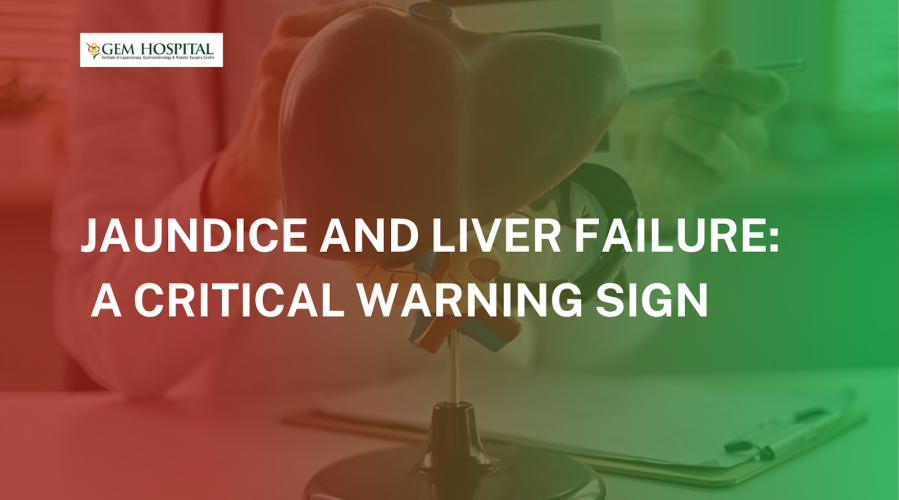Learn what gallstones are, their common symptoms, causes, and treatment options. Discover when to seek medical care and how to manage gallstone complications effectively.
Can jaundice be a sign of liver failure?

Jaundice is a generally benign condition characterized by yellowish discoloration of the skin, conjunctival, mucous membranes. It occurs when there is too much bilirubin, a yellow pigment, in the blood. Jaundice is common among newborns and generally harmless, but it can also indicate more serious problems, including liver failure. The relationship between jaundice and liver function is important to know, as prompt medical attention can be paramount to controlling health complications.
How Jaundice Relates to Liver Failure
Liver failure is a severe condition where the liver is no longer able to function effectively. The liver carries out numerous critical functions, including metabolizing toxins, generating important proteins and metabolizing waste materials like bilirubin. When liver failure happens, it becomes unable to properly break down and excrete bilirubin, leading to it building up in the blood.
There are two primary types of jaundice linked to liver dysfunction:
- Hepatocellular Jaundice: This type of jaundice occurs when the liver cells are damaged and cannot process bilirubin effectively. It is often seen in conditions such as hepatitis, cirrhosis, or liver toxicity.
- Obstructive Jaundice: In this case, the bile ducts that carry bilirubin from the liver to the intestine become blocked. This can happen due to gallstones, tumours, or other obstructions that prevent bilirubin from being properly excreted from the body.
Symptoms to Watch For
Jaundice itself may not always indicate liver failure, but if it appears alongside other concerning symptoms, it could point to a serious liver issue. Look out for these warning signs:
- Yellowing of the skin or eyes: This is the most obvious sign of jaundice.
- Abdominal pain: Especially in the upper right side, which can be a sign of liver damage.
- Fatigue and weakness: These can indicate a decline in liver function.
- Dark urine: A result of bilirubin being excreted through urine rather than stool.
- Confusion or disorientation: Known as hepatic encephalopathy, this occurs when toxins build up in the brain due to liver failure.
- Swelling: In the abdomen or legs, which may occur due to liver dysfunction.
Is Jaundice Always a Sign of Liver Failure?
No, jaundice is not always related to liver failure. It is commonly seen in newborns, where it is often due to an immature liver that struggles to process bilirubin. In such cases, Jaundice Treatment is usually minimal, and the condition typically resolves on its own within a few days.
However, jaundice in adults or persistent jaundice in infants may be a red flag. Conditions like viral hepatitis, alcohol-related liver disease, gallstones, and autoimmune diseases can cause liver dysfunction and may result in jaundice. It is important to seek medical advice if jaundice is accompanied by any of the warning symptoms mentioned earlier.
Prevention and Early Detection
The key to preventing liver failure and the jaundice associated with it is early detection and proper liver care. Regular check-ups, maintaining a healthy lifestyle, and avoiding excessive alcohol consumption or exposure to harmful substances can help protect your liver.
If you notice any signs of jaundice or suspect liver issues, it is crucial to seek medical advice as soon as possible. Early intervention is critical in managing liver conditions and preventing long-term damage.
Jaundice is not always a sign of liver failure, but when it occurs alongside other symptoms like abdominal pain, confusion, or dark urine, it should be taken seriously. If you or a loved one experiences jaundice, especially in combination with these symptoms, it is important to consult with a healthcare provider immediately for a proper diagnosis. Timely treatment and care can help manage liver health and prevent complications.
At GEM Hospital, we provide expert care for liver-related conditions. Book your appointment today for a comprehensive evaluation and personalised treatment.
Blogs & Article
Learn about bloating and gas problems, including common causes, symptoms, and effective solutions to improve digestion, reduce discomfort, and maintain gut health.
Learn how unverified Ayurveda treatments may cause liver damage, understand the risks, symptoms, and why medical guidance is essential for safe care.


